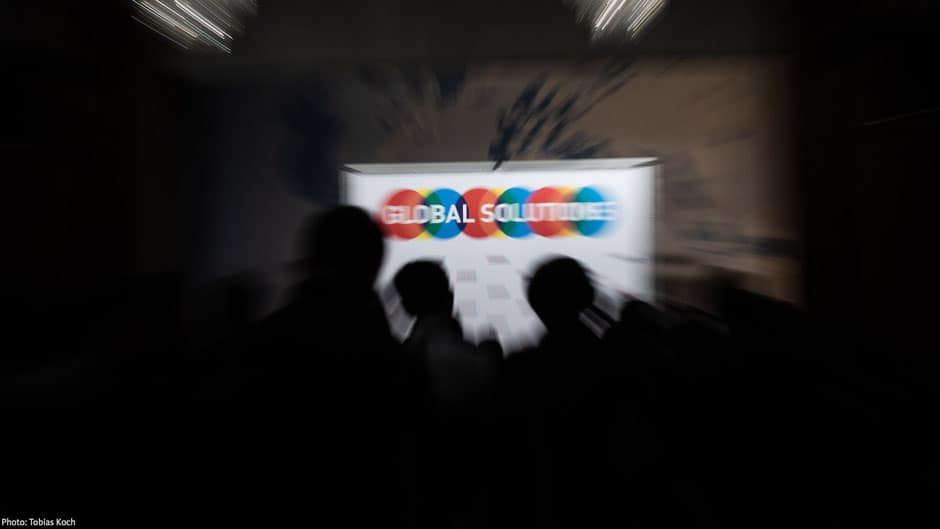A commentary by Aderonke Motunrayo Ige (YGC, 2019)
With contributions by Ayaz Kado (YGC, 2019)
From the shores of Africa, into the very core of American culture and to the heart of Europe, the problem of ‘gender-based violence’ has woven itself into our global narratives. Gender-based violence exists and is perpetuated in varying degrees and dimensions.
Gender-based violence includes, but is not limited to, trafficking, labor and sexual exploitation, female genital mutilation, workplace harassment, physical intimidation as well as emotional and economic violence.
The 2019 Global Solutions Summer School chose gender equity as one of its work streams and that commendable gesture further lends credence to the importance of addressing this topic. Young Global Changers in the gender-equality work stream collectively agree that the issue of gender-based violence needs to take the front burner and form part of a global agenda, in order to achieve the much-desired paradigm change.
During the various panel sessions of the summit, topics related to inequality, marginalization and oppression were discussed alongside other important subjects such as rights of LBT women, which will form a part of the 2019 G20 Summit agenda in Japan.

In an interview with researcher Ellen Ehmke, a social inequality analyst at Oxfam, she revealed how inequality wears colored lenses and the global society picks and chooses to address inequality as convenient. This culture of selective cohesion is an all-important topic of attention and should be brought to the fore without hesitation, if the global community is to make appreciable progress.
“There is no paradigm shift, until the world opens its eyes to the violence constantly experienced by half its population,” said Ehmke, who was also a panelist at the session ‘Inequality and social cohesion: measurement and policy’ at the Global Solutions Summit. This was also demonstrated in the selection of panelists on the ’Inequality’ panel, which was alarmingly seated with four men and only Ehmke as a woman. It further reflects the painful reality that even in issues that concern women, men often assume the front-line position.
In 2006, Amnesty International conducted a report looking into practices in the country of Nigeria, as an example of endemic violence against women. The organization reported that the “social stigma attached to being a victim of rape discourages women from reporting the crime and very few cases of rape are brought to court. Definitions of rape in national legislation continue to be inadequate and there are considerable differences between the different definitions […] leading to arbitrary decisions concerning the seriousness of this crime.”
The urgent and important necessity of inclusion and a demolition of the systems of oppression that promote a culture of gender-based violence cannot be overemphasized in any humanly beneficial and progressive agenda.
Gender-based violence wears a cloak of many colors and has far reaching consequences that constrain women’s autonomy and life chances. This, in turn, has a devastating effect on victims, survivors and society at large.
To achieve a worthwhile paradigm shift, inequality must be acknowledged as a fostering factor for the systems of oppression that promote gender-based violence. This system includes cultures, beliefs, power dynamics and erroneous tenets of socialization, which make it possible for patriarchy and misogyny to thrive.
In the words of Chidi King, Director of the Equality Department at the International Trade Union Confederation and a panelist at the summit: “The International Trade Union on its part totally acknowledges the reality of gender-based violence in the workplace and the trade union is in negotiations over a draft policy, incorporating gender realities of women in the workplace, including the menace of violence.”
The policy will provide a unified system of accountability and gender justice for victims and survivors of gender-based violence in the workplace, Chidi explained.
The Global Solutions Summit concluded with promises from the Japanese Ambassador in Germany, Takeshi Yagi, as well as President of the Global Solutions Initiative, Dennis Snower, that women’s issues, which include gender-based violence, will be given a place in the 2019 G-20 Summit in Japan and in future global agendas.
The views and opinions expressed in this article are those of the authors and do not necessarily reflect the views of the Global Solutions Initiative.
